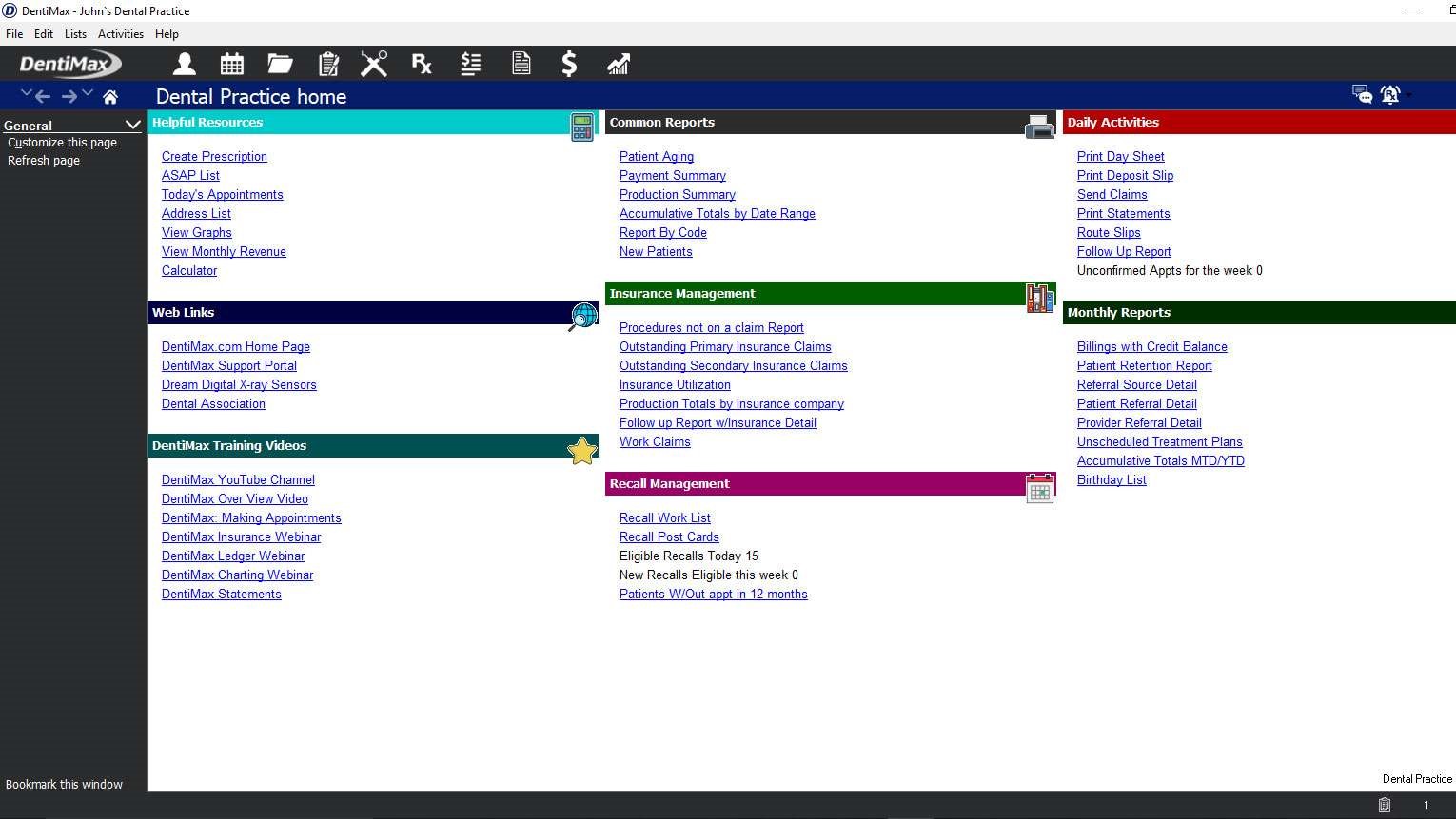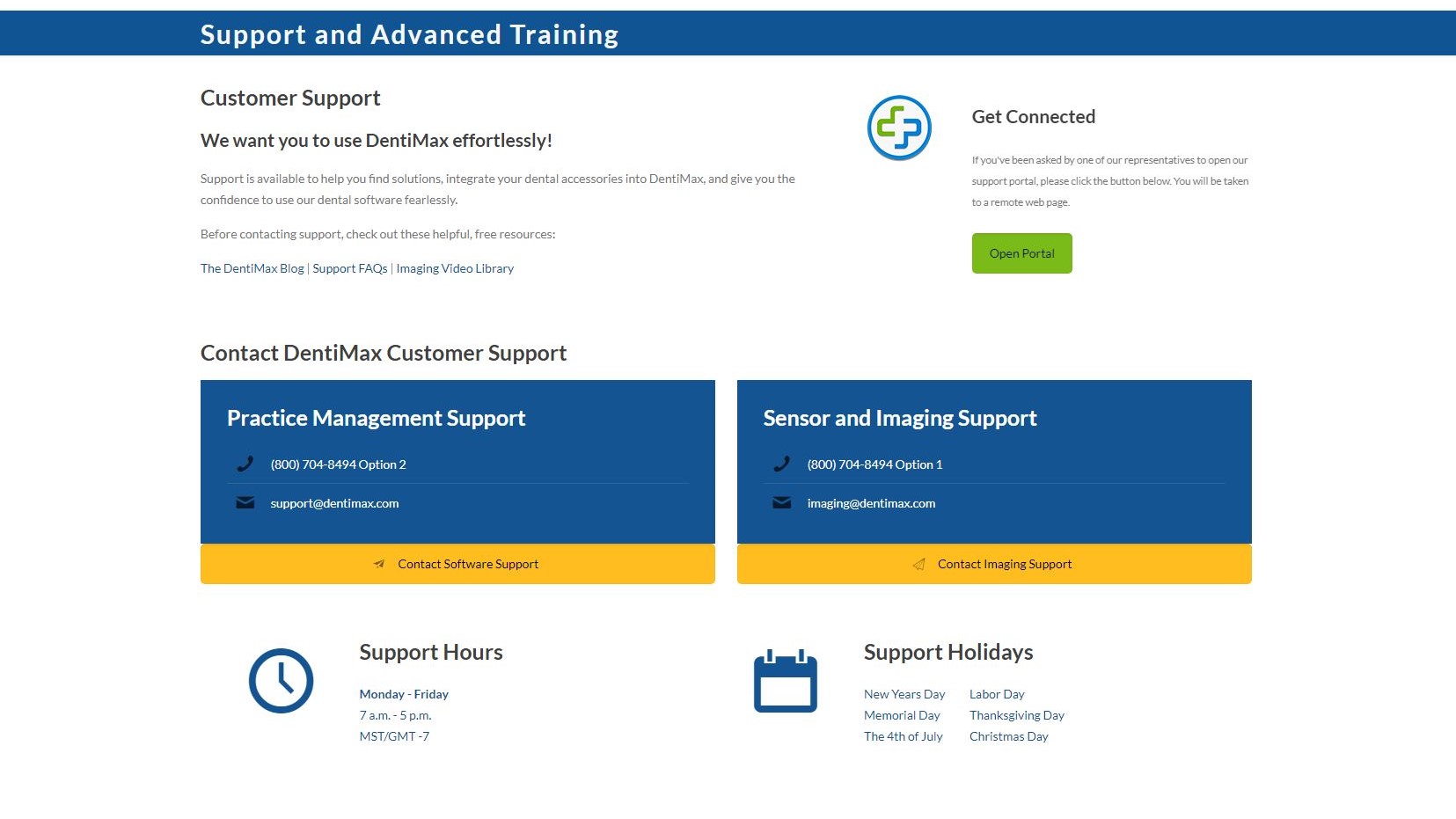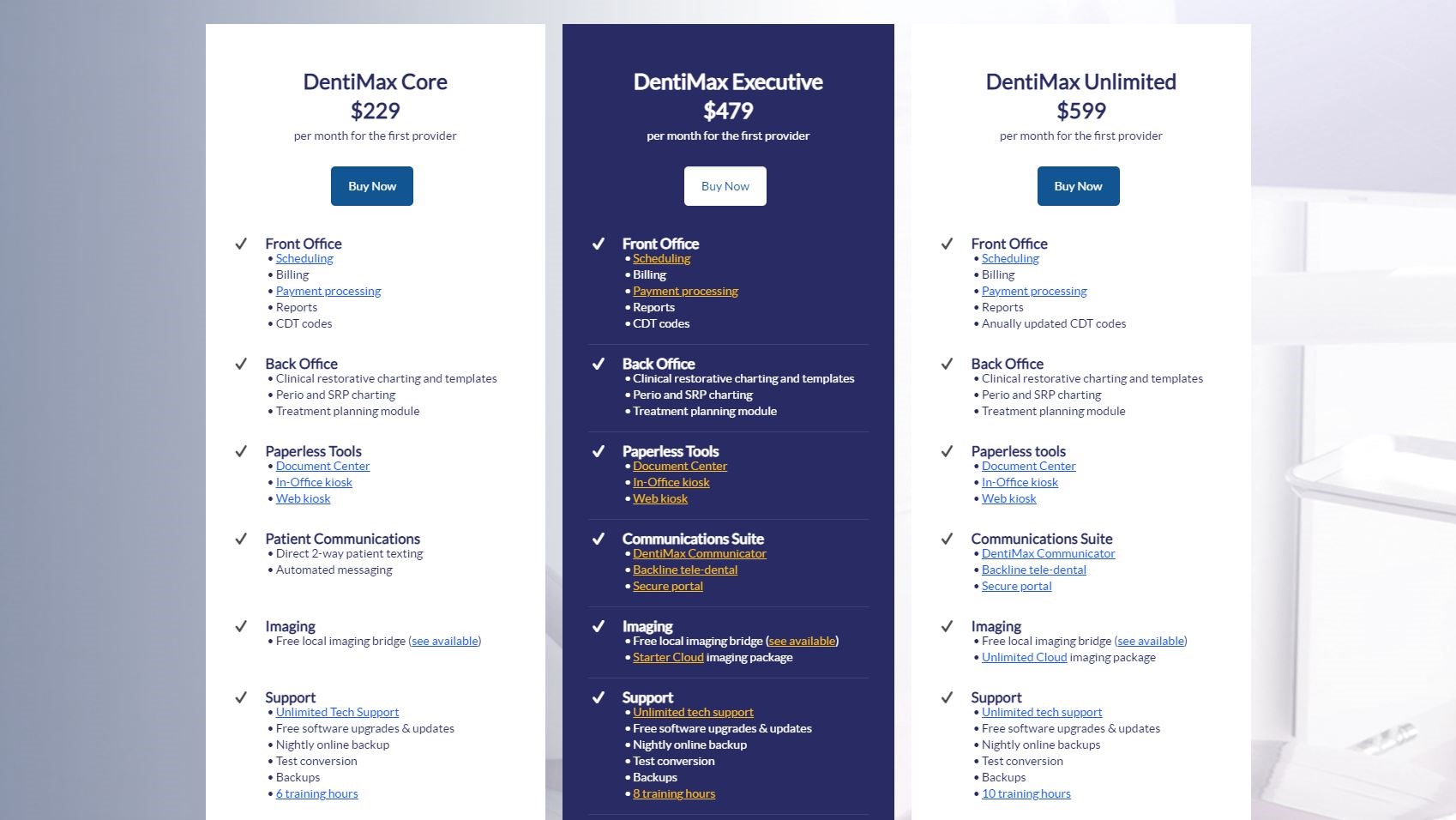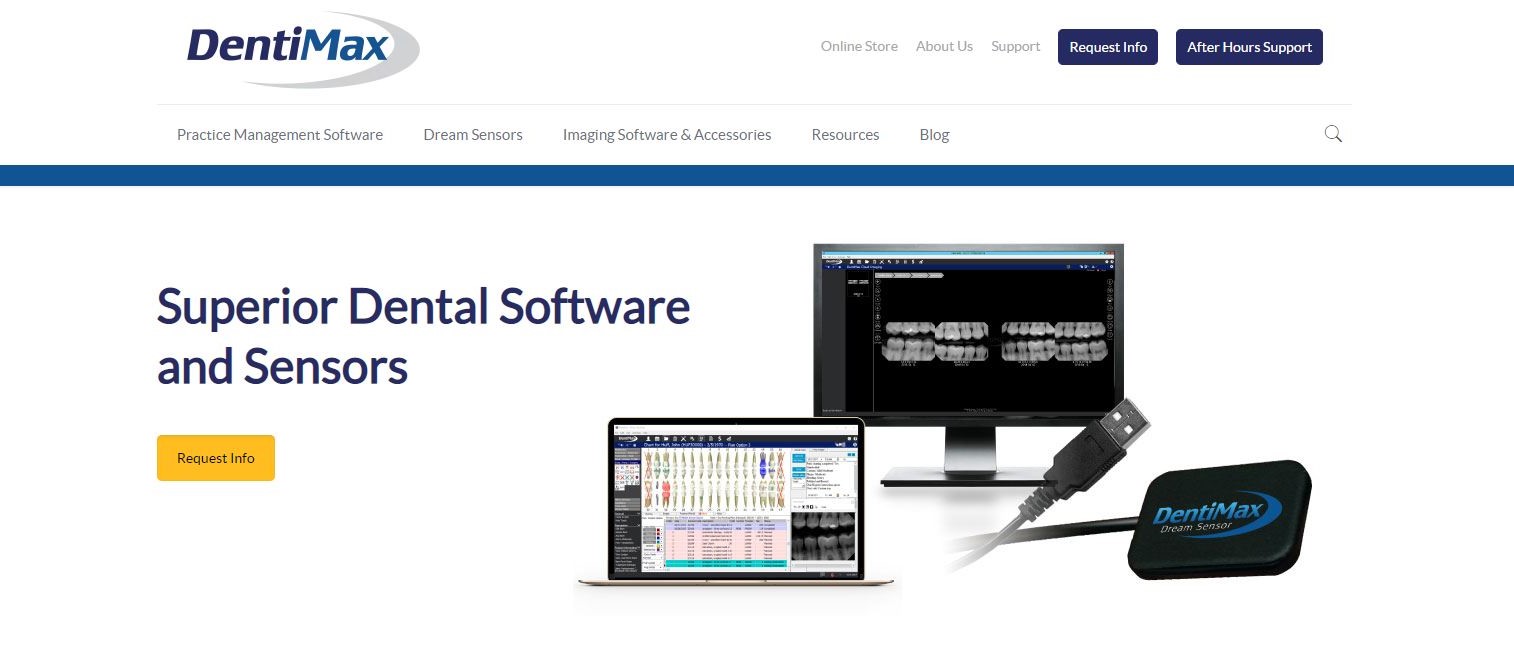TechRadar Verdict
DentiMax offers a comprehensive dental practice management solution, with functions to cover needs like texting patients and coding, and a sensor for x-rays available. While attractive, the high cost of all of this may put off some practices.
Pros
- +
Mostly transparent pricing
- +
Toll free support included
- +
X-ray sensor integration
- +
Award winning
Cons
- -
Mobile apps are missing
- -
Days and hours of support are limited
- -
Expensive
- -
No free trial
Why you can trust TechRadar
Founded in 2004 to provide dental practices with an improved dental software solution, DentiMax also improved the dental x-ray sensor. It was borne from the efforts of cofounders David Arnett, running two busy dental offices, and Lee Varney, the head developer from a medical software company. With the goal of reducing costs in comparison to competing solutions, they created an affordable, and intuitive dental practice management software solution with an integrated dental x-ray sensor.
DentiMax has earned numerous accolades and awards over over fifteen years, notably Dentistry Today’s Top 100 Products of 2019.
Features
Providing a secure, dental practice solution, DentiMax is designed to offer numerous options, and make it easier for dentists to focus on clinical care, as opposed to the drudgery of office operations. There is also a focus on integration of a variety of tools- both clinical and business- to facilitate running a busy dental practice.
From a clinical perspective, DentiMax integrates in Electronic Health Record (EHR), to make it an easy task for capturing the patient’s information, which then gets used across the system. From the clinical charting screen, by way of example, realistic tooth drawings are used, to make it drop dead simple for documentation of the work completed- and any further treatment planned. Furthermore, the patient screen is visually clear, and provides instant access to patient information.
DentiMax focuses on the US dental market, but the Northern neighbors are not left out as there are additional versions available for the Canadian market, and also for international dentists as well. For example, DentiMax has support for alternate tooth numbering systems, like the FDI World Dental Charting system.

DentiMax also works on streamlining of the workflow. From a home screen, which is designed to be personalized, it can contain shortcut links to sections of the software that are most frequently used. Patient lists get created, and then are easily customized via filters to display the information in columns that are useful to a particular practice. Additionally, e-prescribing, and electronic patient insurance verification are both fully supported.
Advanced functions support the front office also, with the ability to handle challenges such as a deceased patient, management of the difficult task of recalling patients, and intra-office messaging. Additionally, modules are available for auto finance charges, and a schedule search by color block, to name just a few features. There is also support for a web kiosk, and a document center.
Sign up to the TechRadar Pro newsletter to get all the top news, opinion, features and guidance your business needs to succeed!
Drawbacks
It may be hard to believe in this day and age, but there are no available mobile apps supporting DentiMax.
Going deeper, users also indicate some issues with DentiMax. These run the gamut from a support kiosk that did not work, and also frequent freezing issues with the program. Also, some dentists make the complaint that DentiMax serves a general dental practice better, and will need to be adapted for a more specialty focused practice, such as an endodontic practice with more specific needs.

Support
There is available support via a choice of methods, including email, and phone. We also want to point out that phone support is through a toll free number. Another option is email, which potential users should be cautioned against is that it is not considered secure for HIPAA.
We find that the support hours are too limiting, with only weekdays from 7 AM to 5 PM, Mountain Standard Time open to call, and also it is closed on holidays as well. Keep in mind that many dental practices are open on Saturdays, so we encourage practices to figure out the restricted hours of support will work for them.
While there is also no option for an online chat (other than for a purchase), there is one for an online portal.

Pricing
The starter tier is the DentiMax Core Plan, at $229 (£174) per month for the subscription for the first provider. While there was previously a $199 (£151) one time setup fee, we no longer find it. It has plenty of features, including the software updates, unlimited tech support, a new customer hotline, and direct two way patient texting.
Moving a notch up is the DentiMax Executive Plan for $479 (£363) per month for the initial provider. It takes it to the next level with multiple additional features, ranging from an increase in the online training to 8 hours, a Practice Stats Dashboard, Realtime Claim Status and 500 text statements with E-pay per month.
The top tier is the DentiMax Unlimited Plan for $599 (£454) per month for the first provider. This plan increases the online training allotment to 10 hours, annually updates the CDT codes, an unlimited cloud imaging package, and eRx services.
Unlike previously, it appears that there are no additional costs for additional modules. There are also options to create a custom package, but the price is not available and a quote is required. However, there is also no free trial unfortunately for the main software, other than the sensor.
A selling feature of DentiMax is the well integrated ‘Dream Sensor” which is subscribed to separately. The x-ray sensor gets sold separately, or more accurately subscribed to, although there might be a possibility to purchase one as DentiMax points out a 3 year warranty. It is a USB sensor that is CMOS based. The sensor starts at $79 (£60)/month, and has a 14-day trial period (by way of comparison, we searched and found dental x-ray sensors from a low of about $600 (£455) to $4,000 (£3,034).
Final verdict
DentiMax has created a strong dental practice management solution, with advantages encompassing upfront pricing with a choice of tiers, an x-ray sensor that gets fully integrated with the software, and a simple to use electronic record. Some drawbacks we would mention are the missing mobile app support, support hours and days that are too limited, and the overall expensive price. Overall, DentiMax offers a neat solution for managing a dental practice, but the cost is likely to put off some groups.
We've also highlighted the best dental practice management software
Jonas P. DeMuro is a freelance reviewer covering wireless networking hardware.
